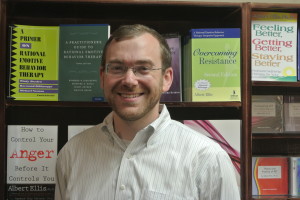by Mark Schiffman, M.S.
One day, a professor interrupted his lecture and pulled out a bag of biscuits from his briefcase, mumbling that he was hungry and had to eat something. A kind and considerate professor, he offered some of these biscuits to his students. As the students chewed these tasty biscuits, the professor showed his pupils the original packaging, which revealed the words “Dog Cookies.” Two of the students who were eating the “cookies” immediately became nauseous, put their hand in front of their mouths and ran out of the classroom to the bathroom.
The professor, Alfred Korzybski, wasn’t a mean-spirited prankster, but was rather trying to prove a point. “You see,” Korzybski said, “I have just demonstrated that people don’t just eat food, but also words, and that the taste of the former is often outdone by the taste of the latter.”[1] Korzybski’s point in this anecdote, and the main thrust of his General Semantics theory, is that the words we use have a tremendous amount of impact on our lives.
Albert Ellis relied heavily on Korzybski’s works when generating REBT and hence the emphasis on how “Shoulds” and “I can’t stand it” strongly influence our emotional well-being. The language we use when we talk to ourselves and we talk to others will affect us, and consequently it may be worth it to “watch our language” to see if our word choices are causing us unnecessary distress.
To leave you with one example – sometimes when somebody does something that we perceive as wrong, like cutting us off while we are driving, our response may be along the lines of “he is such a jerk (or insert alternative curse word here)!” Using this “is of identity,” as Korzybski called it, we globally evaluate this person and this could generate an overly angry response. By changing our language to “that person did a jerky thing,” that would more likely generate a more appropriate frustrated response.
[1]R. Diekstra, Haarlemmer Dagblad, 1993, cited by L. Derks & J. Hollander, Essenties van NLP (Utrecht: Servire, 1996), p. 58. Retrieved from Wikipedia –https://en.wikipedia.org/wiki/Alfred_Korzybski

